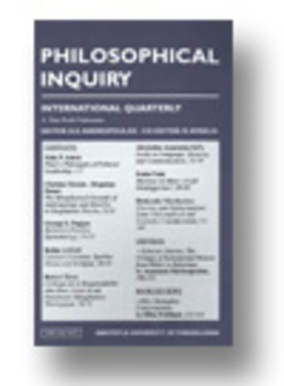Moore and Wittgenstein on common sense
Part of : Philosophical inquiry ; Vol.XXXI, No.3-4, 2009, pages 65-75
Issue:
Pages:
65-75
Author:
Abstract:
Philosophers often invoke some sort of consensus in order to justify their analyses on knowledge. Such an appeal could be interpreted as a plea for common sense. Yet there are many senses of common sense. In this paper, I would like to explore G.E. Moore and L. Wittgenstein’s appeal to such a folk consensus. I will argue that while the former attaches common sense with the everyday beliefs of plain men, the latter invokes the universal norms underlying human practice and therefore invites an ideal common sense that can better serve as an epistemic criterion.
Subject:
Subject (LC):
Notes:
Περιέχει σημειώσεις και βιβλιογραφία




